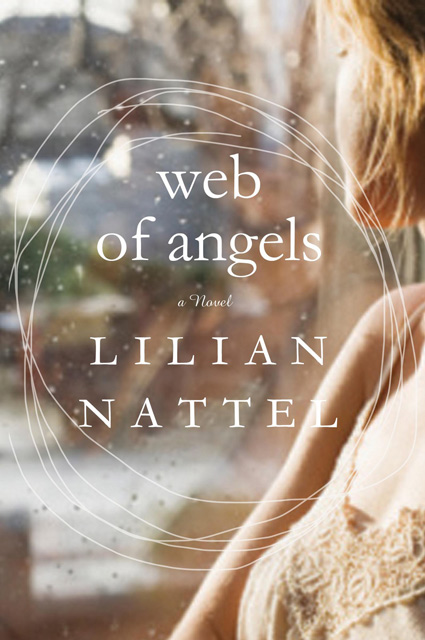Five Questions for Author Lilian Nattel

Zoomer sat down with the author to talk about her third novel Web of Angels, which tells the story of a mother with Dissociative Identity Disorder whose past is stirred up by a young neighbor’s suicide.
Athena McKenzie: Where did the idea for this story come from?
Lilian Nattel: As a new mom, I was in a chat room for people who are healing from difficult life experiences and I happened to encounter a lot of people with Dissociative Identity Disorder (DID). And I discovered that someone quite close to me has DID. I was shocked to realize that I never recognized it because my image of DID was Sybil. Just like most people, you think multiple personalities, you think Sybil. DID is not just like that. That was just percolating in my mind as my kids were very young while I was working on another book that I was stalled on. I decided to just open up the mental gates and spend some time writing and this was what came up. A story of a mom with DID.
AM: How did you cope with some of the brutal stuff you had to research in writing this?
LN: I heard a lot, I read a lot, so yes, there is that. I think what really grounds me is my own family. My children, my husband, my neighborhood; which is partly why I set this novel in a neighborhood based on mine. Though all of these things ground me, the kinds of books I love are the kinds of books I write. I love books that face head on, no holds barred, all the reality of life with all its warts. But at the same time has hope and recognizes the beauty of life and the love and the light that is possible. So, that’s what sustains me too.
AM: Did you ever consider holding back with some of it, like the abuse?
LN: I think in writing Web of Angels, I really wanted to have a balance in terms of humour, family life, beauty and the reality of the subject matter so that the reader can be held. Just the way I am held by my family life. So, make the subject matter real and truthful, but at the same time part of something larger that is also real and truthful that is also there in the novel, which is life-enhancing.
AM: Can you tell me about the research you did?
LN: First of all, besides knowing more than two dozen people well, there were other people I knew not as well, with DID. I also interviewed counselors, legal professionals, the police. For the climax of the novel, I spoke at length to someone at Children’s Aid to find out how it would be handled at their end. I spoke to a police officer at the local station and went to down to meet her and see the station. And I spoke at length to the officer in charge of the child exploitation section. I would think, “I have to call the police and I have to talk to them,but they’re busy catching the bad guys. How can I do this? How can I interrupt their important work?” I really had to push myself to do this. It was a wonderful experience. Their dedication, commitment and empathy and knowledge was so impressive.
AM: You said you love books. What do you read?
LN: I’m really eclectic. I read every genre. For me, I like a novel that has strong women and I like a novel that is both truthful and at the same time has an optimistic viewpoint. One of the books that I read recently that I absolutely loved is called Momo by Emile Ajar. It’s a novel about an elderly Jewish woman who is a holocaust survivor and a former prostitute who is raising a young Arab boy in a suburb of Paris in the 1970s where there is a lot of brothels and criminal activity. It’s told from the point of view of the boy and the voice is just incredible. Laugh out loud funny and at the same time, beautiful and poignant. I just finished Ru by Kim Thúy, the volume that was translated from French. I just read absolutely anything.
Follow our book beat tweets @ZoomermagBooks!